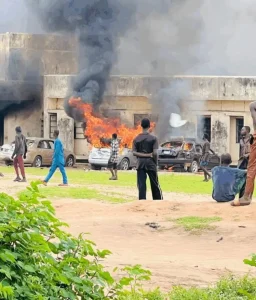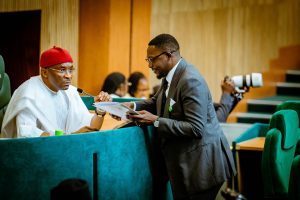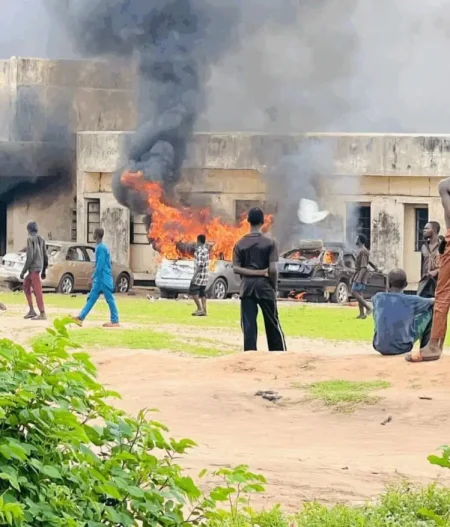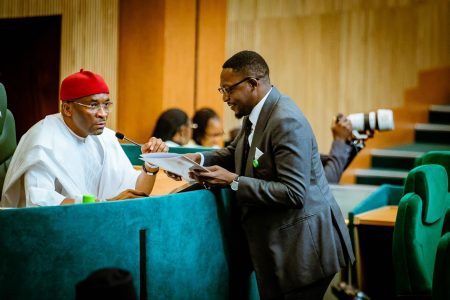Diplomatic push for ceasefire in Sudan suffers major blow as Arab nations reject joint statement
Efforts led by the UK to form a contact group aimed at facilitating peace talks in Sudan collapsed on Tuesday after key Arab countries refused to endorse a joint statement at a London conference. The disagreement is mainly between Egypt, Saudi Arabia, and the United Arab Emirates undermined hopes of coordinated international action to end Sudan’s two-year civil war.
This failure marks a serious setback for diplomatic interventions, especially as recent violence has led to hundreds of civilian deaths in Darfur refugee camps and millions more displaced. While the UK Foreign Office expressed disappointment over the lack of consensus, it maintained that some progress was still made.
In place of a final communique, foreign ministers from the UK, France, Germany, the African Union, and the EU issued a joint statement emphasizing their commitment to a peaceful resolution. They opposed any foreign interference that could escalate the conflict or prolong the fighting and stressed the importance of preventing Sudan from being divided.
UK Foreign Secretary David Lammy had launched the conference with optimism, decrying the global inaction in the face of severe atrocities including beheadings, sexual violence against infants, and famine. He stressed that the main barrier to peace was not funding or UN documents, but political will. He urged all sides to prioritize protecting civilians, allowing humanitarian access, and pursuing peace.
Despite Lammy’s appeals, the Arab states did not agree to a set of diplomatic principles, which had been the primary goal of the conference. Organizers clarified that the event was not a platform for direct negotiations or financial pledges but rather a step toward unified international support for Sudan’s future, including backing for an African Union-led contact group.
Notably, no Sudanese officials or civil society representatives were invited an indication of the war’s complexity and foreign involvement. Since breaking out in April 2023, the conflict has pitted the Sudanese army, led by Gen. Abdel Fattah al-Burhan, against the paramilitary Rapid Support Forces (RSF), headed by Mohamed Hamdan Dagalo, known as Hemedti.
The proposed contact group sought to shift Middle Eastern states from supporting armed factions to promoting peace. However, finding language acceptable to Egypt and the UAE who are perceived to support opposing sides proved difficult. The UAE is accused of backing the RSF, a charge it denies, while Egypt maintains strong ties with the Sudanese army.
Sudan’s government criticized the conference for excluding it while allowing the UAE’s participation. UAE minister Lana Nusseibeh condemned violence from both sides, especially RSF attacks on refugee camps, and called for an unconditional ceasefire, unrestricted aid delivery, and a civilian-led government.
Both the army and RSF face accusations of widespread atrocities, with the conflict leaving tens of thousands dead, displacing 13 million people, and pushing much of the country into famine. Recently, RSF forces captured two refugee camps in Darfur as part of a push to control El Fasher, the region’s last major holdout.
In response, Lammy announced an additional £120 million in humanitarian aid, aimed at helping 650,000 people, while Germany pledged €125 million for Sudan and nearby countries.
Meanwhile, human rights and aid organizations urged the global community to hold accountable those supplying arms to the warring factions in violation of a UN arms embargo. Yasmine Ahmed of Human Rights Watch warned that without meaningful outcomes, the international community would have failed Sudan once again.
Kate Ferguson from Protection Approaches called the conference a test of Lammy’s resolve as foreign secretary in a world riddled with crises. She emphasized the need for a firm, clear stance to help stop the atrocities in Darfur.
Despite international efforts, peace talks seem unlikely for now, and many fear Sudan could face a de facto partition based on territorial control. The conference also coincides with U.S. aid cuts, which have already affected humanitarian operations. Mercy Corps reported losing support for 220,000 people due to the reductions.



![Man is not built to sexually be with one woman’ – 2Face Idibia [VIDEO]](https://kwaraexpress.com/wp-content/uploads/2025/07/IMG_2094-259x300.jpeg)







![Man is not built to sexually be with one woman’ – 2Face Idibia [VIDEO]](https://kwaraexpress.com/wp-content/uploads/2025/07/IMG_2094-450x522.jpeg)

